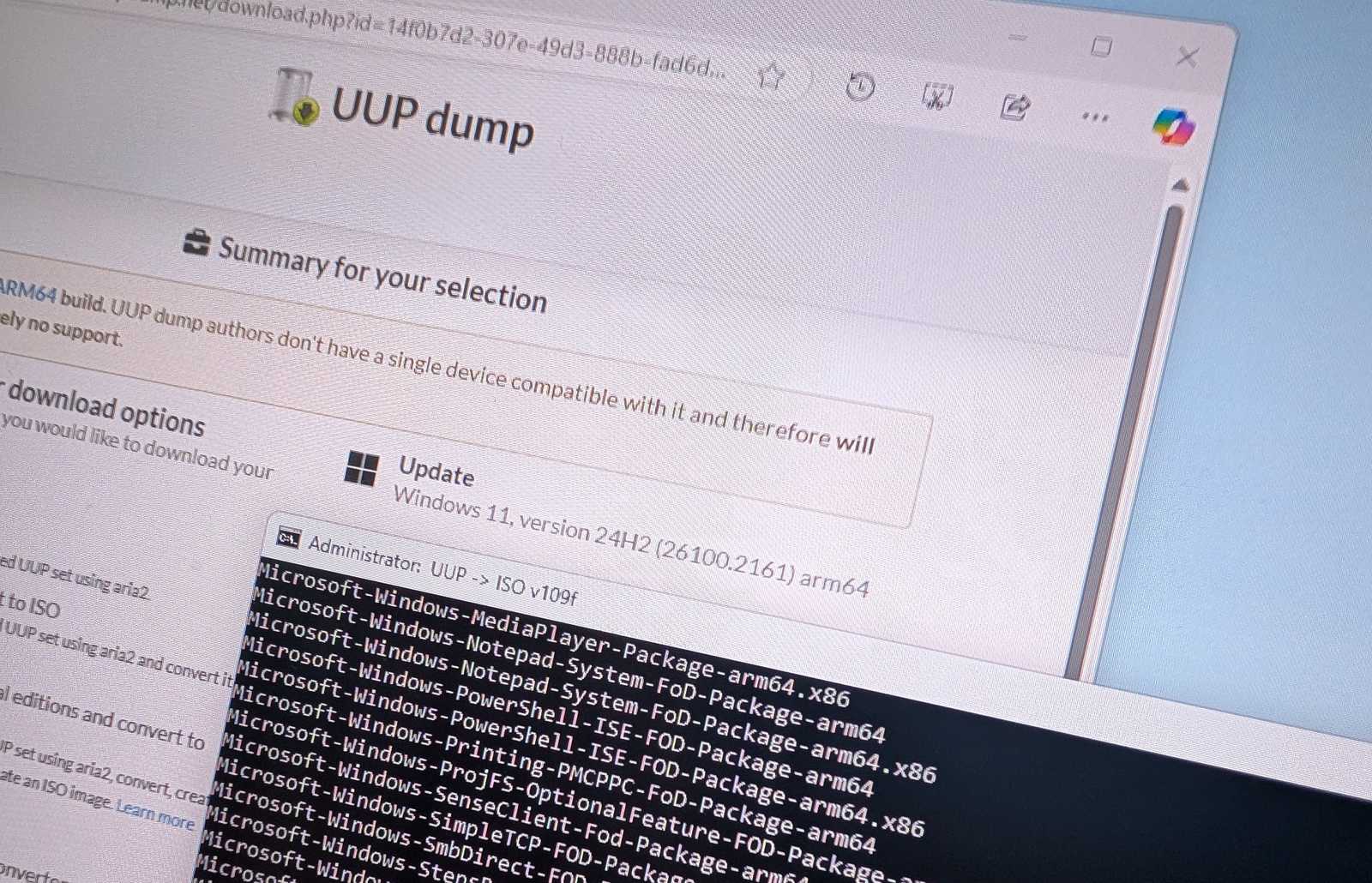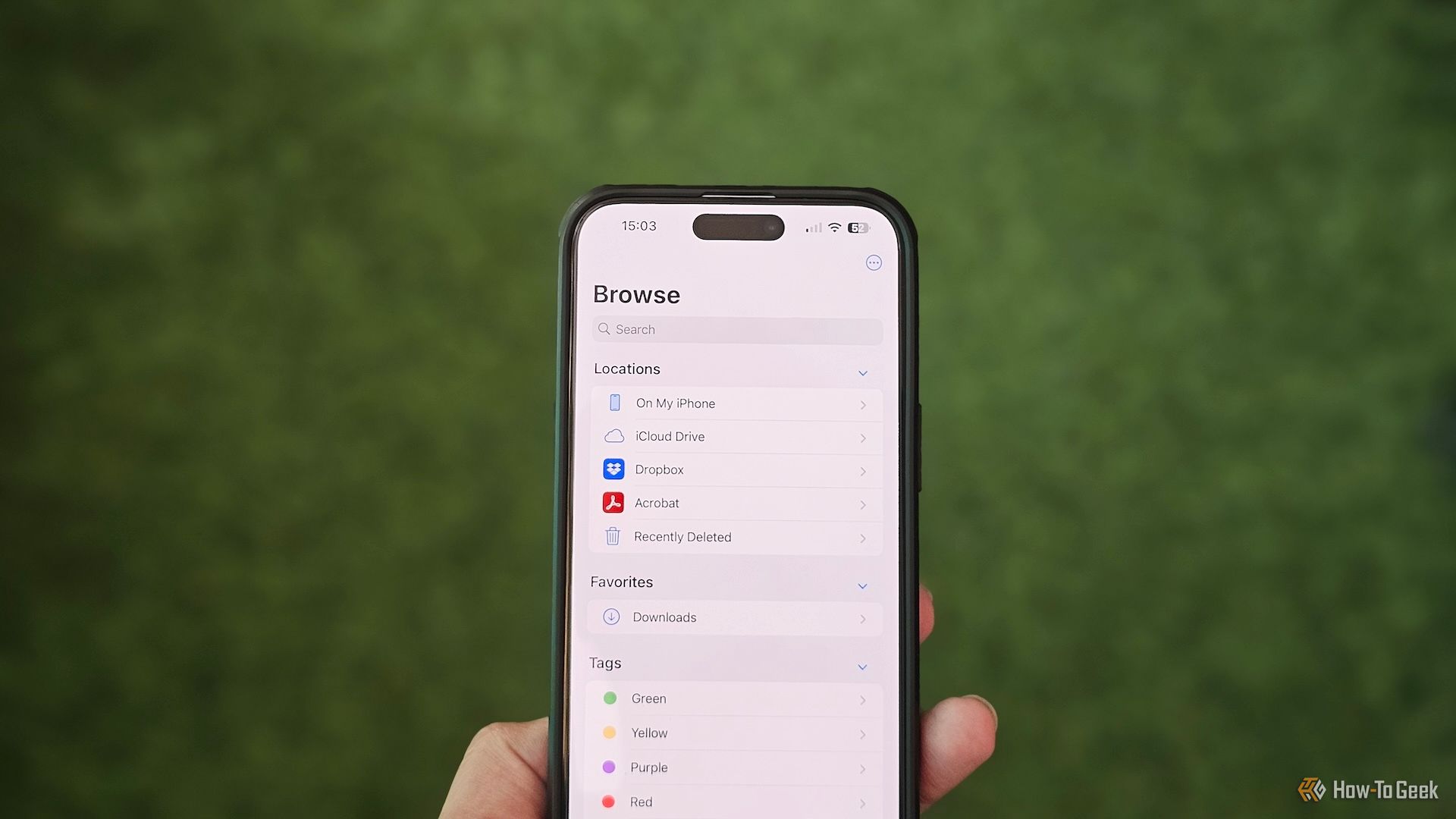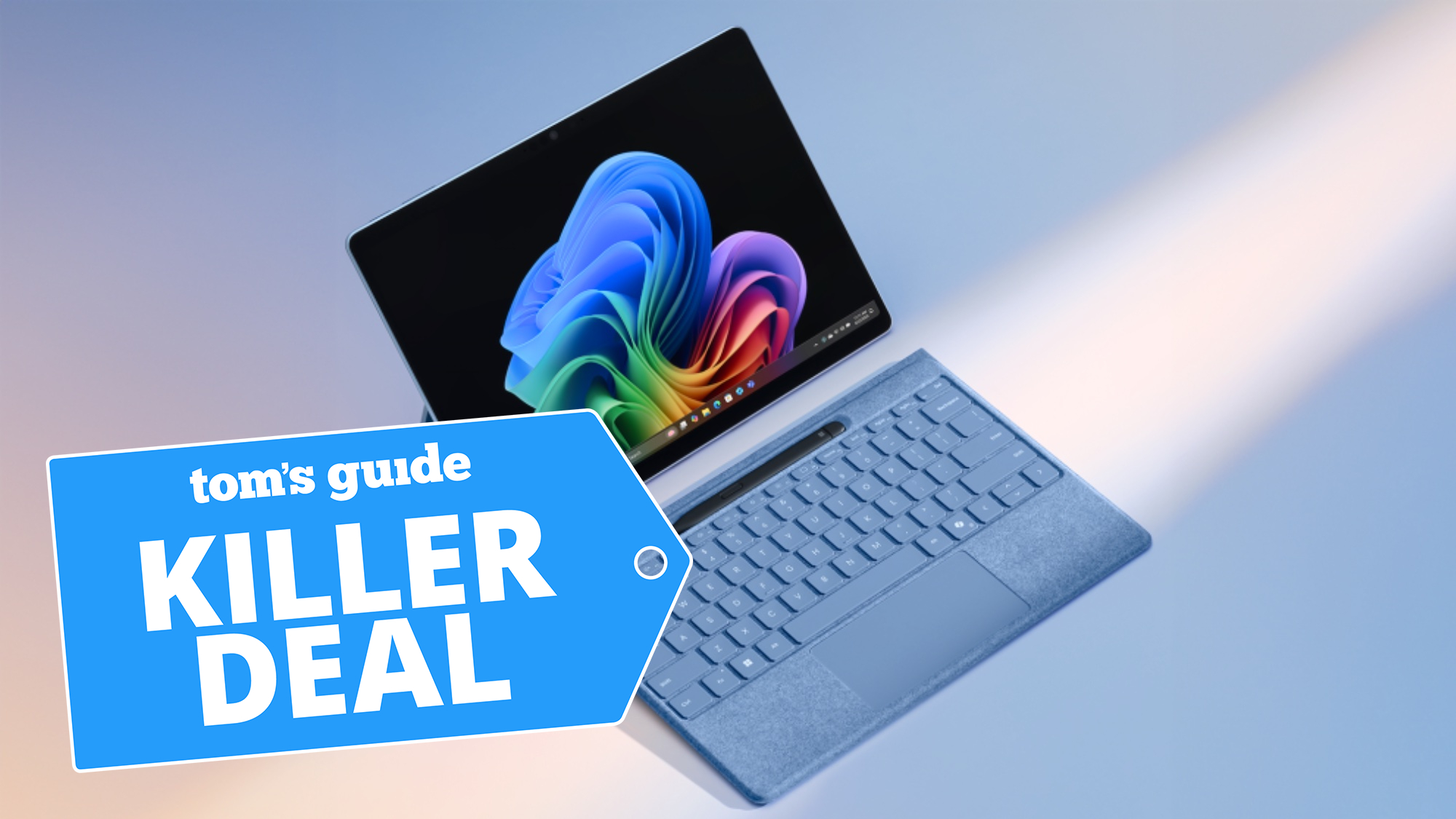How to download Windows 11 ISO file for arm64 (ARM) PCs

- To download the Windows 11 ISO file for ARM devices, you have to use the UUP Dump script to download the installation files and create a custom ISO file, which you can use the Rufus tool to create a bootable USB installer.
If you have an ARM-based computer (such as a Copilot+ PC with a Qualcomm Snapdragon X Elite processor, Surface Pro (11th Edition), or Laptop (7th Edition)), you can get the ISO file for Windows 11 to perform a clean install of the operating system. However, you will have to resort to alternative methods since Microsoft currently still doesn’t offer an official image for download.
Recently, I was looking for the Windows 11 ISO file to set up a virtual machine on my Apple MacBook Air. Since it has one of the modern M2 chips, the regular image didn’t work because Microsoft doesn’t offer it for devices with ARM architecture, even though the company supports arm64 devices.
Microsoft plans to make an ISO available for arm64, but it’s not an option now. As a result, currently, the only option is to use the UUP Dump script along with the Rufus tool to create the bootable media.
UUP Dump is a powerful tool that enables you to create customized ISO images of various Windows versions, including Windows 10 and 11 for x64 and arm64. It leverages the Unified Update Platform (UUP) to directly download the necessary files from Microsoft’s servers, providing a streamlined and efficient way to obtain the latest builds.
In this guide, I will outline the steps to download the Windows 11 ISO file for ARM-based devices. Yes, you can use an x64 (AMD or Intel) computer to create the ISO file and USB bootable media for arm64 computers.
Download Windows 11 ISO for arm64 devices
To download the Windows 11 ISO file for arm64 devices, use these steps:
-
Click the Windows 11 menu and select the version “24H2” (or the latest release available) option.
-
Select the Windows 11 build to download the latest arm64 ISO file—for example, Windows 11, version 24H2 (26100.xxxx) arm64.

-
Choose the installation language with the “Language” menu.

-
Click the Next button.
-
Select the editions to include in your ARM device’s Windows 11 ISO file.

-
Click the Next button.
-
Select the “Download and convert to ISO” option.

-
Check the “Include updates (Windows converter only)” option.
Quick note: This is the option that will integrate the necessary updates to make the ISO file version of Windows 11 24H2 or the latest version available at that moment.
-
Click the “Create download package” button to save the tool on your device.
-
Open the zip folder with File Explorer.
-
Click the Extract all button.
-
Select the location to extract the files.
-
Click the Extract button.

-
Right-click the uup_download_windows.cmd batch file and select the Run as administrator option.
Quick note: You may get a message trying to run the script. If this is the case, choose the “Run Anyway” option.

Once you complete the steps, the script will download the necessary files from the Microsoft servers, and the script will create the Windows 11 ISO file for ARM-based devices, such as Copilot+ PC and Surface laptops with Qualcomm Snapdragon X series processors.
Create a bootable USB drive for ARM PCs
To create a USB bootable for Windows 11 for arm64, use these steps:
-
Click the link to download the latest version under the “Download” section.
-
Double-click the executable to launch the tool.
-
Click the Select button.

-
Open the ISO file location.
-
Select the Windows 11 ISO file for arm64.
-
Click the Open button.
-
Continue with the default settings to create the bootable media.
-
(Optional) Confirm a descriptive name for the USB drive, such as “Windows 11 USB for ARM.”
-
Click the Start button.
-
Click the OK button to skip the customization settings (if applicable).
-
Click the OK button to confirm the deletion of the USB drive data.
Once you complete the steps, you can use the bootable USB flash drive to install Windows 11 on ARM-based devices using a clean or in-place upgrade.
Why You Can Trust Pureinfotech
The author combines expert insights with user-centric guidance, rigorously researching and testing to ensure you receive trustworthy, easy-to-follow tech guides. Review the publishing process.
Source link











